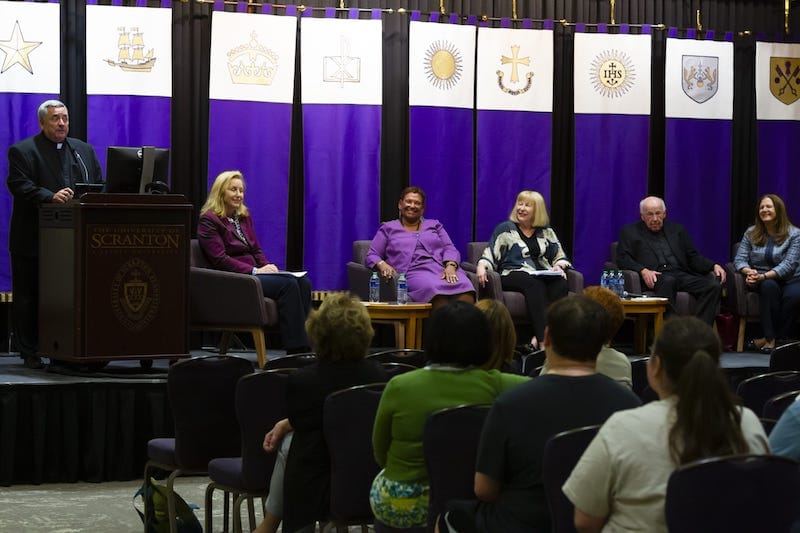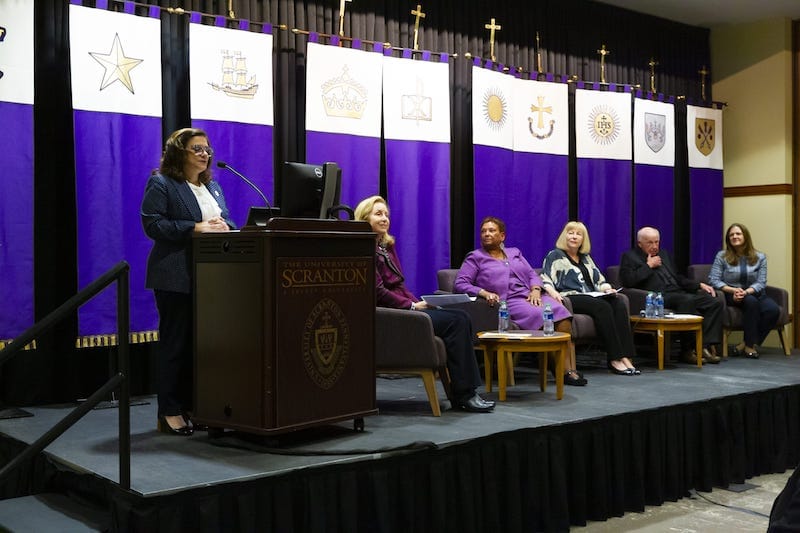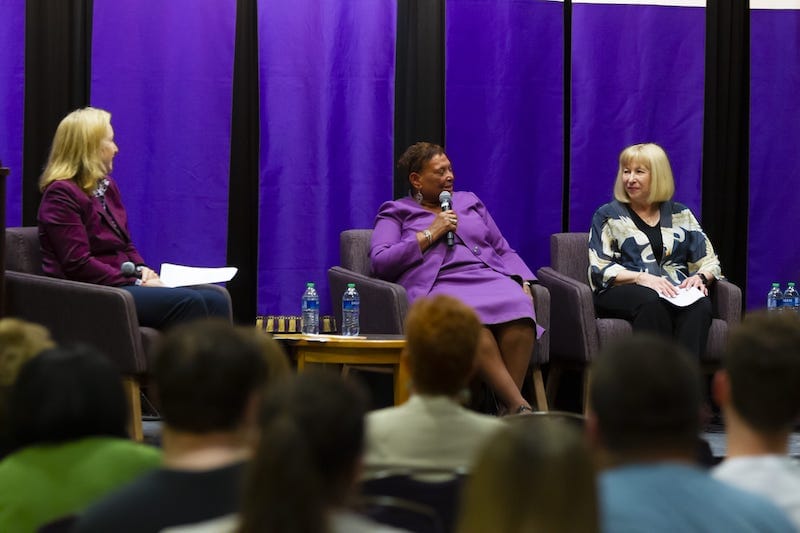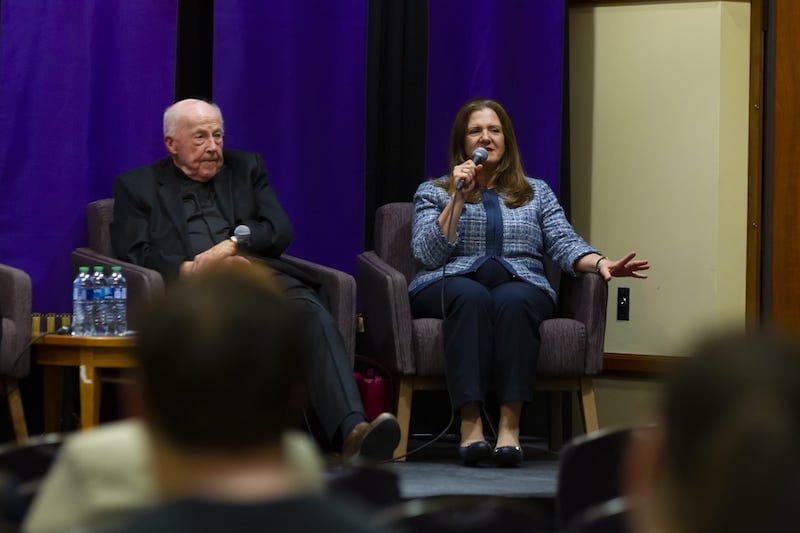Alumnae Discuss Early Years of Coeducation at Scranton
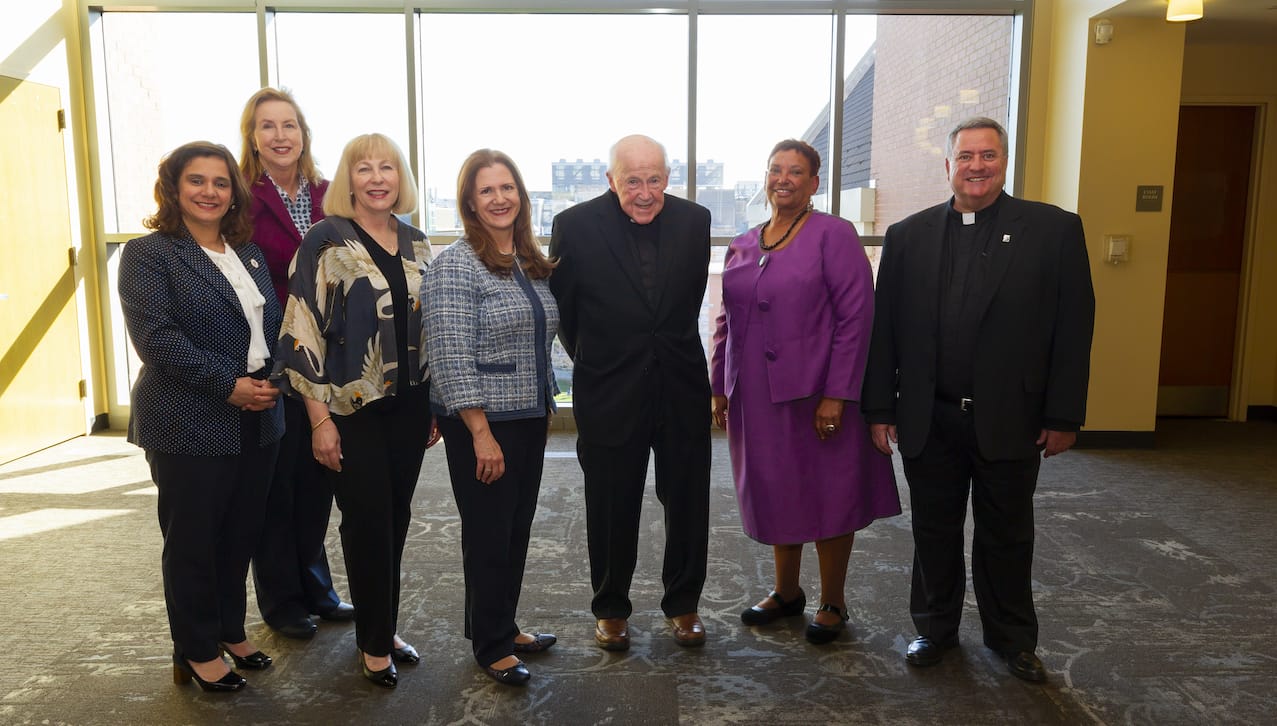
By Bethany Belkowski ’24, student correspondent
To celebrate the 50th anniversary of co-education at The University of Scranton, the Office of Alumni Engagement and the Committee for the Celebration of 50 years of Co-education sponsored a panel discussion where three of the University’s early female full-time students shared their experiences with the early stages of co-education in the 1970s.
The panelists included Melinda Ghilardi, J.D. ’80, a former trustee at the University who works at Mulaney Law and previously served as the First Assistant Federal Public Defender, Martina A. Martin ’80, who serves as the senior vice president and chief operating officer at United Way of Central Maryland and Karen L. Pennington, Ph.D. ’76, G’83, H’15, a former trustee at the University who previously served as the vice president of student development and campus life at Montclair State University. Also joining the University graduates was Rev. Bernard R. McIlhenny, who served as the dean of admissions during the University’s shift to co-education. Following brief introductions, Susan Poulson, Ph.D., professor of history at the University and moderator for the event, posed questions to the panel.
Audio of the discussion is available as an episode of The Scranton Shorts Podcast on Apple Podcasts.
Dr. Poulson first asked Father McIlhenny to describe the atmosphere at the University preceding the decision to transition to co-education. He explained that in the early 1970s, enrollment numbers were dropping and the atmosphere was tumultuous, protests and demonstrations often breaking out on campus due to the Vietnam War and other activist passions. In a desperate attempt to keep the University’s doors open, the University decided to adhere to a trend of co-education that first arose in the 1960s. As Father McIlhenny explained, this transition took two years to execute after receiving approval in 1970, as dorms needed to be converted for female occupants and majors such as occupational therapy and nursing needed to be added to the University since they appealed to many female students. With this information, Dr. Poulson noted that the decision to transition to co-education was not ideologically based, but rather market-driven, to which Father McIlhenny agreed. With the decision made, 120 women joined the University’s incoming class of 1972.
Dr. Poulson then asked the female panelists how they found the preparations for women on campus. Dr. Pennington responded, mentioning the type of updates made to Fitch Hall, such as partitions between the showers, removal of the urinals, and the addition of washers and dryers on each floor. Dr. Pennington also mentioned the unequal treatment women experienced at the University, including the imposition of a curfew and dress code for female students, the experience of being the only female student in a class, who was often ignored by professors and harassment by male students and teachers who did not agree with the decision to transition to co-education, or who wished to sexualize the female students.
The female panelists were also asked to reflect on their experiences at the University that shaped their lives after college. Atty. Ghilardi responded saying that although being in the minority in a classroom was a strange feeling, the experience taught her how to achieve success: “the way to success was to get noticed, and the way to get noticed was to always be prepared.”
Martin also responded, noting the importance of speaking up during her time at the University. She recalled being pushed by a mentor to approach a successful man in advertising to convince him to teach a class on his work. Not only did she succeed, but she helped him build a business. “If you want something, ask for it,” Martin encouraged the audience.
Martin also recalled being inspired by the head of the Jesuit Honors program, a woman, during her time at the University. She stressed the importance of witnessing someone who looked like her in a position of authority and success. With this role model, Martin felt she could be successful too.
In a final reflection, each of the three women noted that during their time at the University, the Jesuits stressed the principle of Cura Personalis, or care of the whole person. Martin concluded her reflection, asking the audience to consider their privilege and to ask, if they ever witness an individual in the uncomfortable position of the minority, “are we good allies in the ways the Jesuits were to us?”
The audio of the discussion is available as an episode of The Scranton Shorts Podcast on Apple Podcasts.



